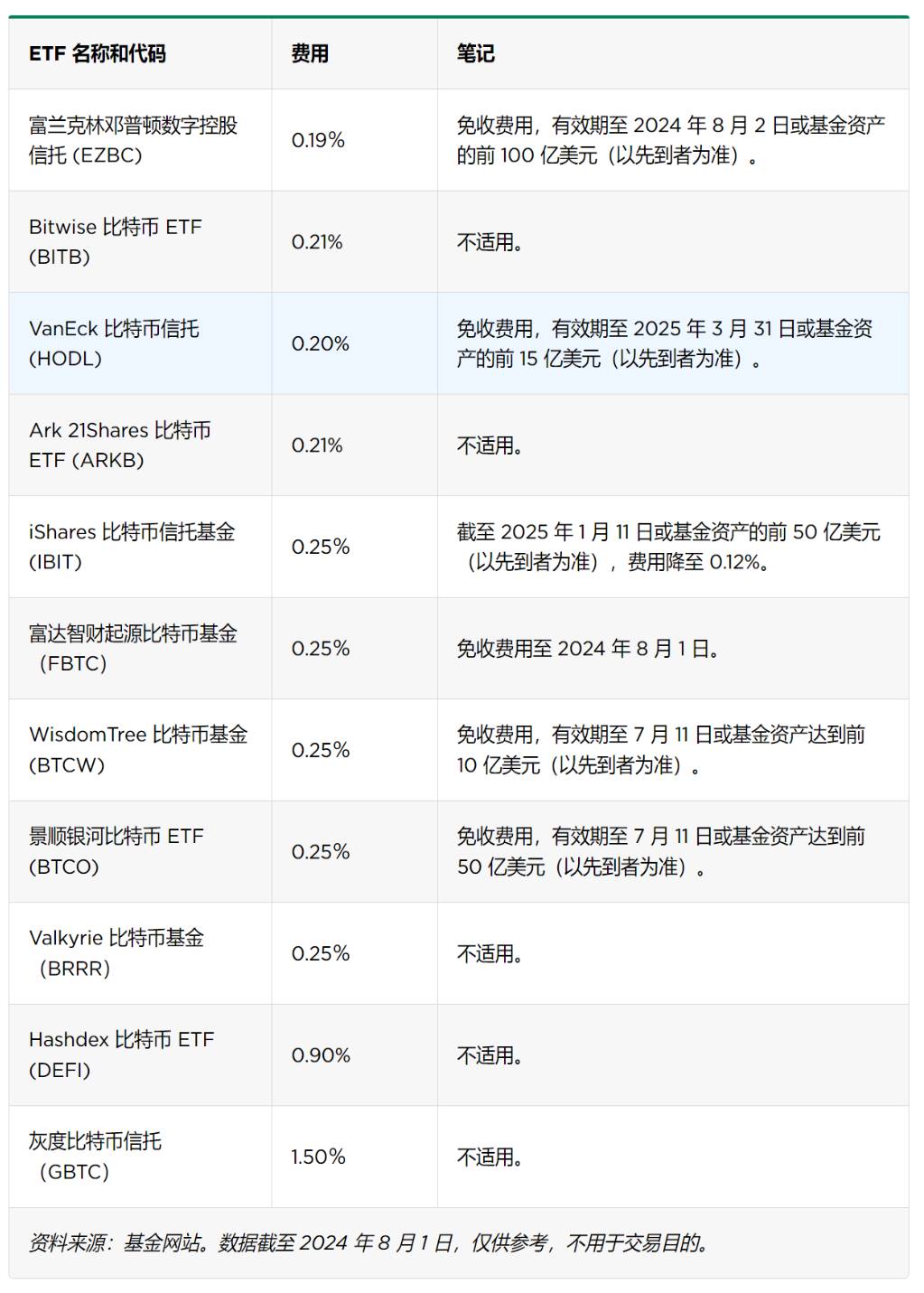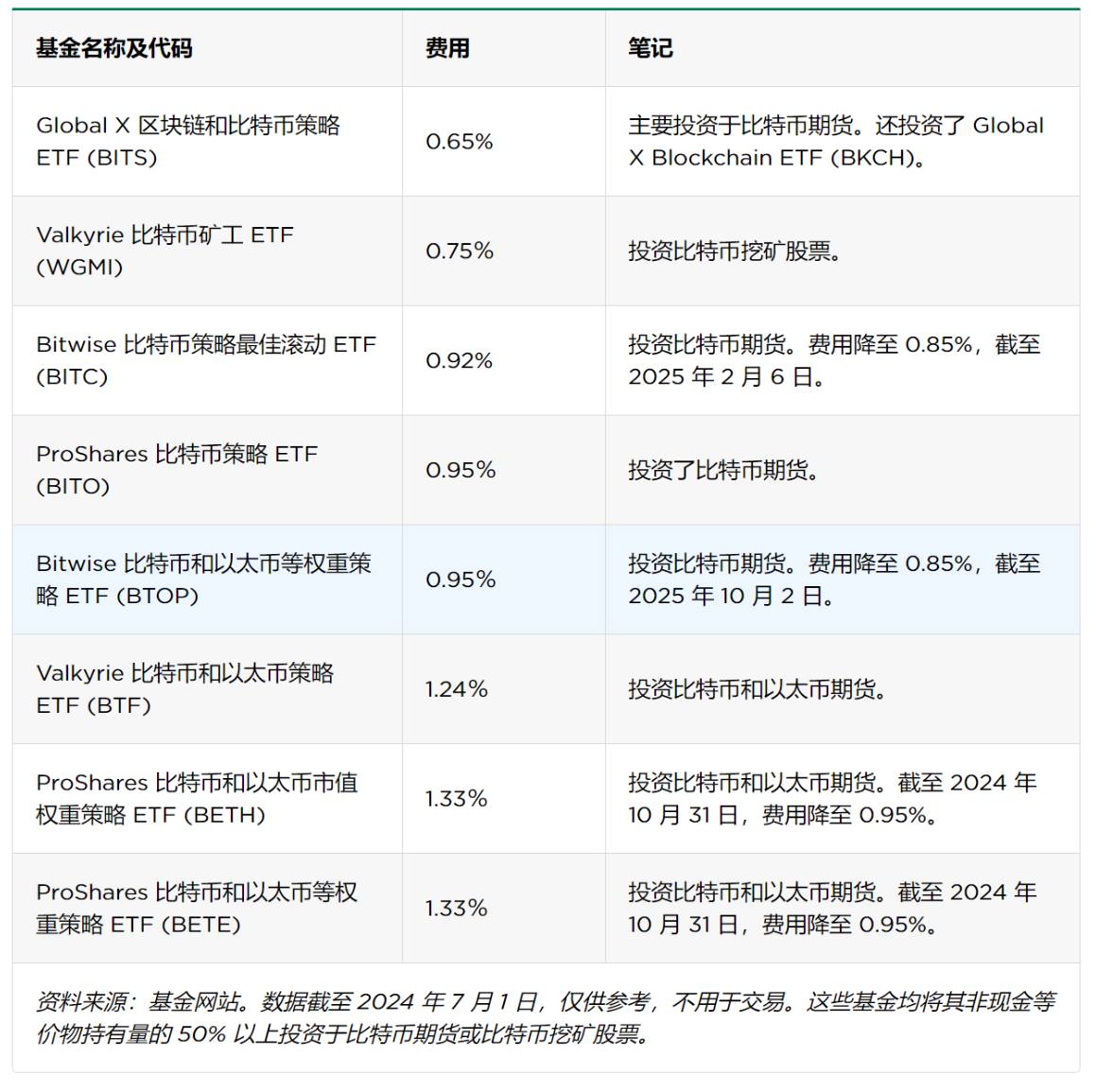Spot Bitcoin ETF: Is there a custody risk?
Author: Sam Taube
Translated by: Plain Blockchain
On Wednesday, January 10, 2024, the U.S. Securities and Exchange Commission (SEC) approved the first batch of spot Bitcoin ETFs, including ETFs from Fidelity, BlackRock, and Invesco. A total of 11 spot Bitcoin ETFs were approved, with 10 of them commencing trading on Thursday, January 11.
1. What is a spot Bitcoin ETF?
A spot Bitcoin ETF is a type of exchange-traded fund that is highly liquid, with prices fluctuating throughout the trading day like stocks. The fund directly tracks the price of Bitcoin, primarily by holding a large amount of Bitcoin itself.
This is similar to a spot gold ETF, which represents shareholders holding physical gold.
But wait—aren't there already Bitcoin ETFs in the market? Yes and no. There are already ETFs and trust funds related to cryptocurrencies in the market, but prior to January 2024, there had never been a spot Bitcoin ETF. These recently approved ETFs are the first to trade on major exchanges and directly hold Bitcoin as a cryptocurrency fund.
2. Top 11 spot Bitcoin ETFs ranked by fees
Here is a list of approved ETFs and their fees, ranked from lowest to highest:

It is worth noting that while spot Bitcoin ETFs aim to directly track the price of Bitcoin by holding Bitcoin, they cannot guarantee the same returns as holding the cryptocurrency itself.
3. What is a Bitcoin strategy ETF?
Bitcoin strategy ETFs attempt to indirectly track the price of Bitcoin. Many ETFs began trading before the first batch of spot Bitcoin ETFs were approved and are still trading today.
Some funds invest in Bitcoin futures, while others invest in Bitcoin mining stocks, making the returns of these funds particularly susceptible to deviating from the returns of Bitcoin due to the indirect nature of these investments.
Top 8 Bitcoin strategy ETFs ranked by fees
Here is a list of Bitcoin strategy ETFs and their fees, ranked from lowest to highest:

4. Bitcoin ETF price war
In January, ten different potential issuers of spot Bitcoin ETFs submitted forms to the U.S. Securities and Exchange Commission, disclosing the fees they intended to charge. Some launched new funds, while others converted existing Bitcoin strategy ETFs into spot Bitcoin ETFs.
The extensive filing activity with the SEC (continuing until just hours before the approval announcement and possibly ongoing) reflects an ongoing price war among issuers. Many Bitcoin ETFs (including spot Bitcoin ETFs and Bitcoin strategy ETFs) have significantly reduced fees and offered limited-time promotional fee waivers.
5. Is there a custody risk for spot Bitcoin ETFs?
Most spot Bitcoin ETFs rely on third-party custodians to physically store the Bitcoin they hold—similar to how spot gold ETFs typically keep their physical gold holdings in the vaults of third-party custodians.
Of the 10 spot Bitcoin ETFs currently trading, 8 use Coinbase (COIN) as their Bitcoin custodian. The only exceptions are the Fidelity Wise Origin Bitcoin Fund (FBTC), which uses Fidelity itself as the custodian, and the VanEck Bitcoin Trust (HODL), which uses Gemini.
Coinbase's dominant position in Bitcoin ETF custody has raised concerns about custody risk. If Coinbase were to encounter serious financial difficulties in the future (e.g., due to a network attack, government penalties, or declining revenue), would the Bitcoin held by the ETFs be safe?
If Coinbase were to go bankrupt, there are mechanisms for the ETFs and investors themselves to reclaim their holdings, but these mechanisms are not necessarily immediate or automatic. Therefore, custody risk may be a consideration when purchasing spot Bitcoin ETFs.
6. What do these approvals mean for Bitcoin?
Peter Eberle, Chief Investment Officer of California-based crypto investment firm Castle Funds, stated in an email interview that these approvals will have a positive impact on the price of Bitcoin.
"Many investors currently do not have access to investment opportunities. For example, many people with 401(k), IRA, and similar accounts cannot easily access Bitcoin. These investors will be able to allocate funds in the future. This will drive demand in the coming years," Eberle said.
However, Eberle also cautioned that bullish sentiment may be overstated, as the approval of ETFs does not necessarily guarantee tens of billions of dollars flowing in on the first trading day.
He said, "Expectations may be overly optimistic and may not have a short-term impact."
7. What do these approvals mean for other crypto investments?
"Crypto tokens are highly correlated. If the price of BTC does indeed fluctuate significantly, then other tokens will also be involved to some extent. This also makes it very likely that we will see an ETH ETF, which could provide a huge boost for ETH," Eberle said, using the ticker symbol "BTC" to refer to Bitcoin and "ETH" to refer to Ethereum.
Eberle believes that ETF approvals may be limited to Bitcoin and Ethereum for the time being.
"BTC and ETH ETFs seem to be the most likely candidates, as BTC and ETH are already traded as commodities on the Chicago Mercantile Exchange (CME)," he said, referring to the futures trading platform. "Other tokens face greater obstacles to overcome, as the U.S. Securities and Exchange Commission still considers many tokens to be unregistered securities."
免责声明:本文章仅代表作者个人观点,不代表本平台的立场和观点。本文章仅供信息分享,不构成对任何人的任何投资建议。用户与作者之间的任何争议,与本平台无关。如网页中刊载的文章或图片涉及侵权,请提供相关的权利证明和身份证明发送邮件到support@aicoin.com,本平台相关工作人员将会进行核查。




